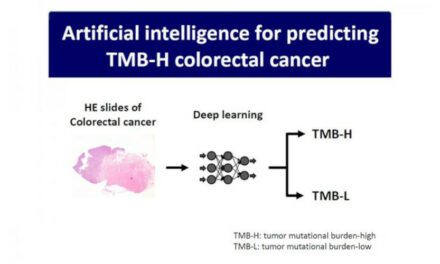Tempus announced that the FDA has approved the company’s first Premarket Approval (PMA) application for its companion diagnostic test, xT CDx. xT CDx is a 648-gene next-generation sequencing test for solid tumor profiling, which includes microsatellite instability status and companion diagnostic claims for colorectal cancer patients.
“This is a significant milestone for Tempus as we continue to establish a regulatory pathway for our platform, which offers solutions to advance both clinical care and support cutting-edge research,” says Eric Lefkofsky, founder and CEO of Tempus. “We designed xT CDx to be a smart test that can empower physicians to provide personalized care for their patients and support researchers in developing better therapeutics.”
The FDA approval further solidifies Tempus as a one-stop-shop for precision medicine solutions, according to the company. Collaborators can leverage Tempus’ comprehensive collection of intelligent diagnostics, clinical trial matching capabilities, and its ever-growing library of multimodal data to support therapeutic innovation.
xT CDx is just one of the many solutions Tempus is applying to advance precision oncology. Tempus plans to apply xT CDx to support CDx claims in additional collaborations with biopharma companies. These companion diagnostics are built on the company’s proprietary platform, which provides a comprehensive suite of solutions for novel drug development programs while also giving physicians the data needed to make informed treatment decisions for their patients.
xT CDx is a qualitative Next Generation Sequencing (NGS)-based in vitro diagnostic device intended for use in the detection of substitutions (single nucleotide variants (SNVs) and multi-nucleotide variants (MNVs)) and insertion and deletion alterations (INDELs) in 648 genes, as well as microsatellite instability (MSI) status, using DNA isolated from formalin-fixed paraffin embedded (FFPE) tumor tissue specimens, and DNA isolated from matched normal blood or saliva specimens, from previously diagnosed cancer patients with solid malignant neoplasms.
The test is intended as a companion diagnostic (CDx) to identify patients who may benefit from treatment with the targeted therapies listed in the Companion Diagnostic Indications table in accordance with the approved therapeutic product labeling.
Additionally, xT CDx is intended to provide tumor mutation profiling to be used by qualified healthcare professionals in accordance with professional guidelines in oncology for patients with previously diagnosed solid malignant neoplasms. Genomic findings other than those listed in the Companion Diagnostic Indications table are not prescriptive or conclusive for labeled use of any specific therapeutic product.





